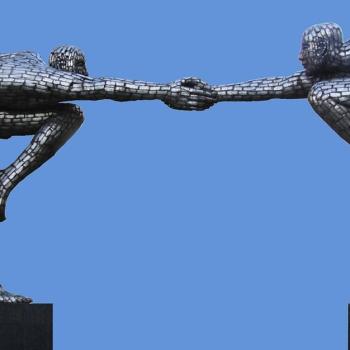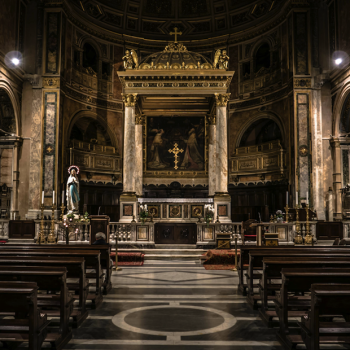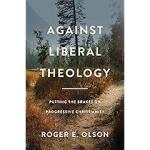Lectionary Reflections
Job 1:1, 2:1-10
October 4, 2015
I am always excited when the lectionary offers my old friend Job as the text to consider for the week. In fact, we get four weeks with the loudmouth from Uz, not nearly enough to do him anything like full justice, but enough to take a closer look at what this remarkable book is finally about.
As I have said to my readers before, the last time Job appeared on our screens, Job and I have a very long history. It was a year long slog through the hugely difficult Hebrew text of Job in 1970-71 that put me on the academic course toward teaching and research in the Hebrew Bible. I wrote a doctoral dissertation on the book, completed in 1974, that propelled my deepening interest in Job. And though I have pretty well repudiated all that I argued in that dissertation, mercifully unpublished and largely unread, I never lost interest in Job and his so-called friends. In 1999, I published a book of my own, Preaching Job, as a way of expressing my thoughts on the book, or at least my thoughts as of fifteen years ago. In the ensuing years Job has continued to tickle my aging brain, and several new thoughts have appeared, ideas that occurred to me not at all fifteen years ago.
So in the four weeks we have, I will try to delineate where my thinking is going now on the book. By way of a teaser, in weeks three and four, an environmental focus will now appear. Job has wonderful ideas to offer to us about our relationship to the environment, the most important subject that all of us now face on our deteriorating planet. But first, the beginning of the story.
Job is a drama whose ultimate subject is the nature of God. It, of course, wrestles with suffering and struggles against simplistic ideas about God and the world, but at the heart of the matter is the deeper struggle concerning just who God may be. The story was written in the exile of Israel in Babylon. Though there is precisely no evidence to prove that claim definitively, it is by far the best hypothesis. Israel's 6th-century B.C.E. removal to the world's greatest city, an exile lasting some two generations, brought crisis to the imagined settled theology of the people. The pillars of the YHWH faith: the promised land, the king descended from the great David, the Temple of Solomon, the regular priestly round of sacrifice and offering, were all gone. The exiles themselves witnessed the destruction of the Temple of YHWH and the palace of the Davidic kingship and saw the smoking ruins of the city disappear as they trudged in chains to Babylon.
The hottest question must surely have been: why has this tragedy happened? The responses were certainly multiple. God has punished us for our evil, as the prophets had warned for centuries, cried some. Others concluded that this YHWH, the so-called creator of sky and earth, the one who choose Israel for a great purpose, was perhaps no God at all. Was not the mighty Marduk, city God of Babylon, far greater than the YHWH whose mystery remained dark and occluded? Or, opined others, perhaps there was finally no God at all, no divine presence in the world. Why not grab for all the gusto you could, since you only went around once in life? Those quietly melded into the swirling mass of humanity that constituted the diverse population of the city and became in effect Babylonians themselves. Another group held out a hardheaded hope that YHWH still had plans for these despondent exiles, great missions that still needed accomplishing. So said the unknown prophet we know as II-Isaiah.
And then there was Job's author, a probing mind who simply refused to accept any easy answers, any responses that partook of old ideas that to him had been forever made foolish and impossible by the horrifying shock of exile. He set out to take those to the woodshed who continued to parrot those bromides that were designed to shut any up who dared to scrutinize and question the "tried and true" replies that so many clung to in their misery. While II-Isaiah warned his hearers that no one should dare to question YHWH (Is. 45), Job's creator said exactly the contrary: everything must be questioned if we are to remain fully alive in this new world. If we are to maintain a connection to YHWH we simply must question all that we think we have known about YHWH. And so he sets out to do.
He (I assume the author is a male, since males were in the main those who could write in the ancient world) began with a test case. What if, he asked, there was a perfectly righteous man (Job 1:1), one who was "blameless and upright," or possibly "wholly blameless," who ended up losing everything, finding himself on the trash dump of his city, among the fish heads and watermelon rinds, shunned by everyone who formerly fawned on him? And what if, though he himself had long been taught and believed, he rejected the usual explanation for this terrible tragedy that it was the result of some evil deed on his part that he lost it all, a belief expressed ad nauseum by his visiting friends, Eliphaz, Bildad, and Zophar?





